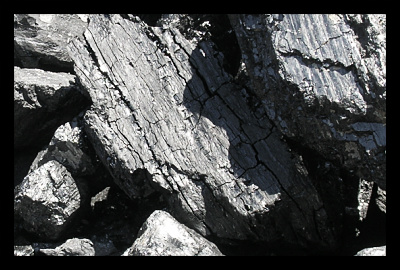Too Much of a Good Thing

We need greenhouse gases. Without them, the Earth would be a cold, lifeless lump of dirt hurtling through space. Greenhouse gases allow the sun’s rays to pass through the atmosphere and warm the earth. They also prevent the warmth from escaping back into space. The problem with greenhouse gases, however, is that the more heat-trapping gases there are, such as carbon dioxide and methane, the warmer earth gets. This consequently increases the “greenhouse effect” and is what is causing a steady increase in the global temperature. The consequences are enormous.
Humans have been simultaneously burning fossil fuels and cutting down forests. Forests, which produce the oxygen needed to balance out carbon dioxide production, can be compared to a planet sized pair of lungs for Earth. The occurrence of fossil fuel burning and deforestation has increased the amount of carbon dioxide present in the atmosphere by 42 percent.
Carbon dioxide is one of the largest contributors to climate change. Though it is a byproduct of many actions, one of the main producers of carbon dioxide is the burning of coal. Coal, a fossil fuel created from the remains of dead plants from millions of years ago, produces enormous amounts of CO2 when burned.
It also took center stage in a global warming debate on Monday in Warsaw, Poland during a U.N. climate conference. Environmental activists there said that the coal industry needs to be part of the climate discourse, because many countries continue to rely on coal as their primary energy source. Coal has been heavily used since the 19th century English Industrial Revolution. While it provides quick energy, it also results in smog, acid rain, and air pollution. In 2011, 44% of emissions came from coal compared to only 35% from oil.
“Leave the coal in the ground,” says UN climate chief, Christiana Figueres. However, the likelihood that countries who rely on coal will abandon it is low. Instead, many countries are aiming to increase the efficiency of coal-powered plants. Economically, many countries refuse to “give up” using coal because the demand for energy never ceases, and as populations increases, coal quickly meets these needs.
China, for example, is the world’s largest carbon polluter, and while it is investing in renewable energy, its coal consumption continues to rise. Coal was 68% of Chinese energy consumption in 2012 and it continues to be the largest producer. As it’s population and energy needs increase, it must meet these demands.
The amount of greenhouse gases is at an annual record high – 39 million tons this year. However, in a study published by the University of East Anglia (UEA), the level at which people are polluting is leveling off. The good news even presents itself in the West, where emissions have dropped. The U.S. produced 3.7% less carbon dioxide in 2012 than the previous year, and Europe, 1.8%. However, individual emissions per person in the US is still 16 tons, compared to people in India who produce only about 1.8 tons.
Nevertheless, the 2.1% rise projected for 2013 means that global emissions from burning fossil fuels are 61% above 1990 levels, the baseline year for the Kyoto Protocol. The Kyoto Protocol, an international agreement developed in Japan on December 11, 1997, was a commitment made to reduce greenhouse gas emissions by at least 18% below 1990 levels from 2013 to 2020.
Professor Corinne Le Quéré of the Tyndall Centre for Climate Change Research at the University of East Anglia led the Global Carbon Budget report. She said: “Governments meeting in Warsaw this week need to agree on how to reverse this trend. Emissions must fall substantially and rapidly if we are to limit global climate change to below two degrees. Additional emissions every year cause further warming and climate change.”
The problem remains that while many countries have signed the Kyoto Protocol to decrease emissions, China and the United States have not.
The world, if it continues with it’s current emission levels, will see a global temperature rise of 2 degrees Celsius, the worst climate change scenario predicted by the U.N. panel on climate change.
– Chloe Nevitt
Sources: David Suzuki Foundation, Fox News, United Nations, University of East Anglia, CNN
Photo: Energy.Gov
